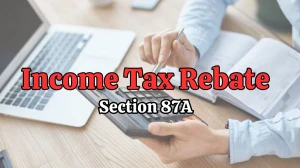
States With No Income Tax: Why States Levying State Taxes?
Few states in the U.S. do not impose a state income tax: Alaska, Florida, Nevada, New Hampshire, South Dakota, Tennessee, Texas, Washington, and Wyoming, providing residents with potential tax benefits and different revenue structures.
Published Jul 14, 2023 | Updated Nov 23, 2023 | 📖 7 min read
States With No Income Tax
Living in a state with no income tax can have both advantages and disadvantages. As of 2023, few states without a state income tax like Alaska, Florida, Nevada, New Hampshire, South Dakota, Tennessee, Texas, Washington, and Wyoming. While most of these states do not impose a state income tax on earned income. For instance, New Hampshire taxes dividends and interest, with plans to phase out this tax by 2025.
Washington, despite not taxing most earned income, has implemented a long-term capital gains tax and the WA Cares Fund, deducting funds for its long-term care program. Choosing to reside in a state without income tax is a strategic approach to potentially lower your overall tax burden. To better understand the implications, it's crucial to explore the benefits, drawbacks, and a comparative analysis of these states concerning other taxes and living costs.
Which are the Tax-Free States?
Living in a state without income tax may offer potential advantages in terms of retaining more of your income, but it doesn't necessarily mean exemption from other taxes or a lower overall cost of living. Additionally, some of these states may have specific taxes on investment income or capital gains for certain high earners.
For example, Washington imposes an income tax on investment income and capital gains, but it applies only to specific income brackets. Similarly, while New Hampshire currently taxes investment and interest income, it is in the process of phasing out these taxes, with the goal of becoming completely income tax-free by 2027.
|
No-Tax State |
Total Tax Burden (% of income) |
Less Tax Burden Ranking |
Ranking in Affordability |
|
Alaska |
5.06% |
1 |
40 |
|
New Hampshire |
6.14% |
3 |
36 |
|
Tennessee |
6.22% |
4 |
14 |
|
Florida |
6.33% |
5 |
38 |
|
Wyoming |
6.42% |
6 |
18 |
|
South Dakota |
6.69% |
7 |
8 |
|
Nevada |
7.69% |
19 |
34 |
|
Texas |
8.01% |
22 |
33 |
|
Washington |
8.24% |
26 |
46 |
Alaska
Alaska boasts the lowest total tax burden at 5.06%, with no state income or sales tax. Residents receive an annual payment from the Alaska Permanent Fund Corp. Despite having some of the highest healthcare costs, Alaska also leads in per capita spending on education.
Florida
Florida, with a 6.33% total tax burden, avoids state income tax but relies on higher sales and excise taxes. It ranks 38th in affordability due to housing costs. Florida’s education spending is lower, earning it a C grade for infrastructure.
Nevada
Nevada, heavily reliant on high sales taxes, holds the second-highest tax burden at 7.69%. Despite ranking 19th in total tax burden, living and housing costs impact affordability. The state also shows lower spending on education and healthcare.
South Dakota
South Dakota, with a 6.69% total tax burden, generates revenue through cigarette and alcohol taxes. Ranking eighth in total tax burden and healthcare spending, it faces infrastructure challenges with no official grade.
Texas
Texas, with an 8.01% total tax burden, forbids personal income taxes, relying on sales and excise taxes. While ranking 22nd in total tax burden, it has average affordability and receives a C grade for infrastructure, with lower spending on education and healthcare.
Washington
Washington, with an 8.24% total tax burden, lacks state-mandated corporate income tax. Ranking low in affordability at 46th, it's the second-best state to live in. Washington displays lower spending on healthcare but higher spending on education.
Wyoming
Wyoming, with a 6.42% total tax burden, lacks personal and corporate state income taxes. It ranks sixth lowest in total tax burden, 18th in affordability, and exhibits higher spending on education and strong healthcare spending.
Tennessee
Tennessee's 6.22% total tax burden, resulting from tax reductions on unearned income, positions it as the fourth-lowest taxed state. With an overall ranking of 14th in affordability, it shows lower spending on education and healthcare, with no official infrastructure grade.
New Hampshire
New Hampshire, boasting the third-lowest total tax burden at 6.14%, taxes dividends and interest. Ranking sixth in the best states to live in, it exhibits higher spending on education, a C- grade for infrastructure, and elevated healthcare spending.
Why States Levying State Taxes?
After the adoption of the U.S. Constitution, states were granted the authority to impose taxes to fund their governments. While the federal government has its taxing powers, states determine their tax policies within constitutional limits. This autonomy allows states to collect revenue through taxes, fees, and licenses to support various governmental functions.
Which States Exempt Retirement Distributions from Taxation?
Twelve states, including Alaska, Florida, Nevada, New Hampshire, South Dakota, Tennessee, Texas, Washington, and Wyoming, do not tax retirement distributions. Additionally, Alabama and Hawaii exempt pensions from taxation, but they do tax distributions from 401(k) plans and IRAs. Illinois, Mississippi, and Pennsylvania specifically do not tax distributions from 401(k) plans, IRAs, and pensions.
Which States Tax Social Security Benefits?
Taxes on Social Security can affect retirees' finances. In 12 states, Social Security benefits are taxed, but the rules vary. This overview breaks down the tax rates and exemptions in these states to help retirees make informed decisions about their finances.
Colorado
- Tax Rate: 4.4%
- Age Restriction: Taxation only for recipients under age 65.
Connecticut
- Tax Rate: Ranges from 3% to 6.99%
- Benefit Exemption: No state taxes if AGI is less than $75,000 (single filer) or $100,000 (married filing jointly).
Kansas
- Tax Rate: Ranges from 3.1% to 5.7%
- Exemption: Retirees with AGI up to $75,000 are exempt from state taxes on Social Security income.
Minnesota
- Tax Rate: Ranges from 5.35% to 9.85%
- Tax Model: Uses federal thresholds for determining taxable benefits.
Missouri
- Tax Rate: Up to 5.3%
- Age Restriction: Age 62 and older with AGIs less than $85,000 (single) or $100,000 (married) fully deduct benefits.
Montana
- Tax Rate: Ranges from 1% to 6.75%
- Exemption: No tax for retirees with AGI less than $25,000 (single) or $32,000 (married filing jointly).
Nebraska
- Tax Rate (2023): Ranges from 2.46% to 6.84%
- Exemption: Single filers and couples exempt if AGIs are less than $45,790 and $61,760.
New Mexico
- Tax Rate: 1.7% to 5.9%
- Exemption: Retirees age 65 and older with AGIs up to $28,500 (single) or $51,000 (married) may deduct up to $8,000.
Rhode Island
- Tax Rate: 3.75% to 5.99%
- Exemption: No tax for retirees at full retirement age earning less than $95,800 (single) or $119,750 (married filing jointly).
Utah
- Tax Rate: 4.65%
- Exemption: Full tax credit for AGIs less than $45,500 (single) or $75,000 (married); partial credit for higher incomes.
Vermont
- Tax Rate: 3.35% to 8.75%
- Exemption: Full exemption for AGI up to $50,000 (single) and $65,000 (married); partial exemption for higher incomes.
West Virginia
- Tax Rate: 3% to 6.5%
- Exemption: Phasing out income taxes on benefits for lower-income residents; full deduction for AGIs up to $50,000 (single) or $100,000 (married).
What are the Pros and Cons of Living in a State Without Income Tax?
Seek professional advice, such as guidance from a financial advisor, when contemplating a move. Professionals can help you navigate complex considerations, including tax implications, residency requirements, and overall financial planning. This advisory support ensures that you make informed decisions aligned with your financial goals and lifestyle preferences. Living in a state without income tax has its pros and cons that impact various aspects of your financial and personal life. Here's a breakdown:
Pros of Living in a State Without Income Tax
- Residents in states without personal income tax often enjoy the perk of not paying state taxes on retirement income, including 401(k) distributions, pensions, and, in some cases, Social Security benefits.
- Living in an income-tax-free state generally means that any capital gains you earn are protected from state taxes (except for New Hampshire and Washington).
- To enjoy the tax benefits of an income-tax-free state, you need to establish domicile, indicating your intention to make that state your permanent home.
Cons of Living in a State Without Income Tax
- States without income tax may rely more heavily on other taxes, such as property or sales taxes, to compensate for the lack of income tax revenue.
- Meeting domicile requirements involves careful consideration, and residency audits are conducted by states.
- While you may save on state taxes, it's essential to assess the overall cost of living in a new state.
States With No Income Tax - FAQs
1. Which states in the U.S. do not have an income tax?
Alaska, Florida, Nevada, New Hampshire, South Dakota, Tennessee, Texas, Washington, and Wyoming do not levy a state income tax.
2. Do states without income tax rely on other taxes for revenue?
Yes, some states without income tax may rely more heavily on other taxes, such as property or sales taxes, to generate revenue for services and infrastructure.
3. Can retirees benefit from living in a state without income tax?
Yes, retirees in states without income tax may enjoy exemptions on retirement income, but they should consider other factors like healthcare, property taxes, and senior care programs.
4. Can residents of states with no income tax still be subject to federal income tax?
Yes, retirees in states without income tax may enjoy exemptions on retirement income, but they should consider other factors like healthcare, property taxes, and senior care programs.
5. What is domicile, and why is it important in income-tax-free states?
Domicile refers to establishing a permanent home, and it's crucial in income-tax-free states as meeting residency requirements determines eligibility for tax benefits.




